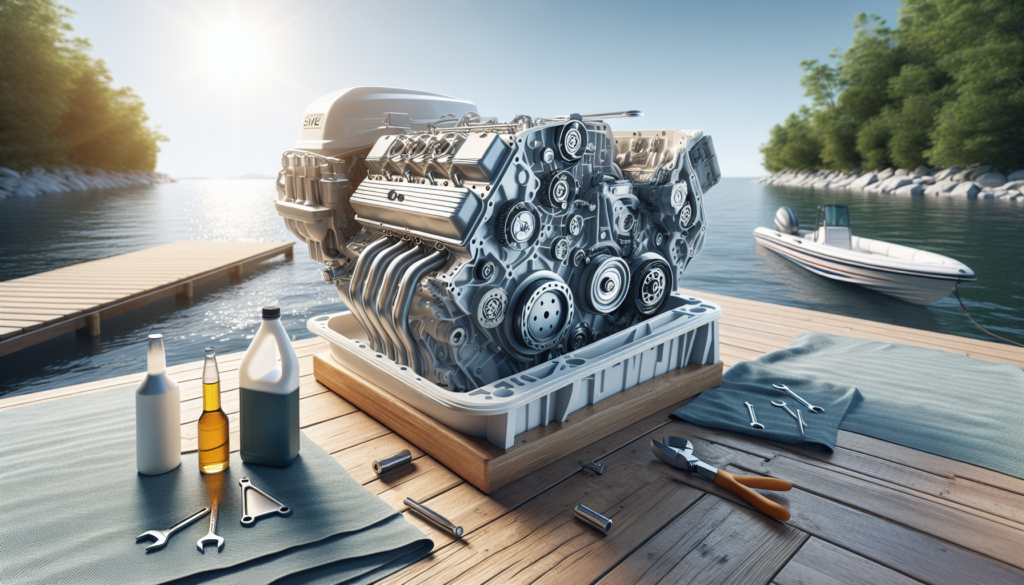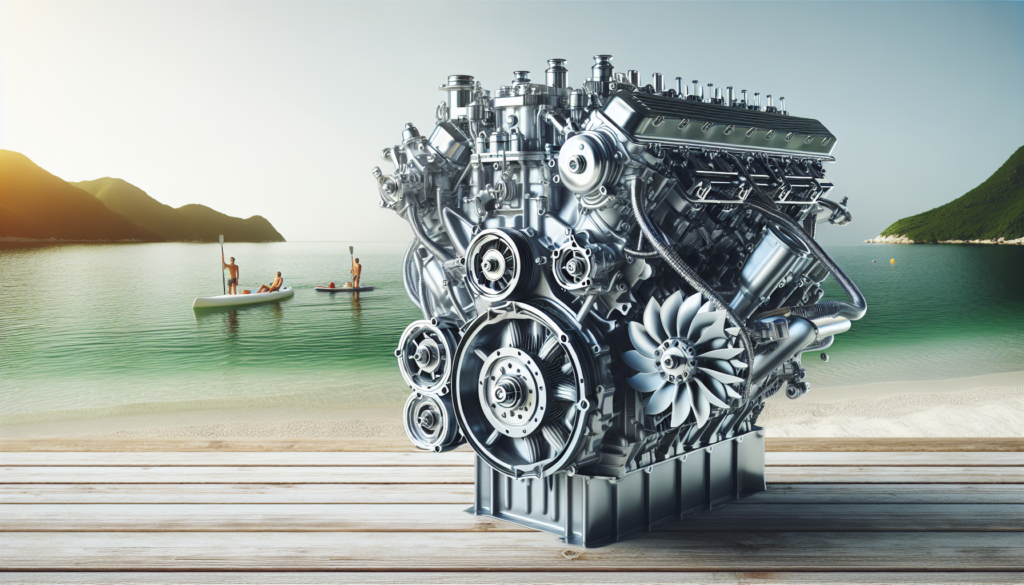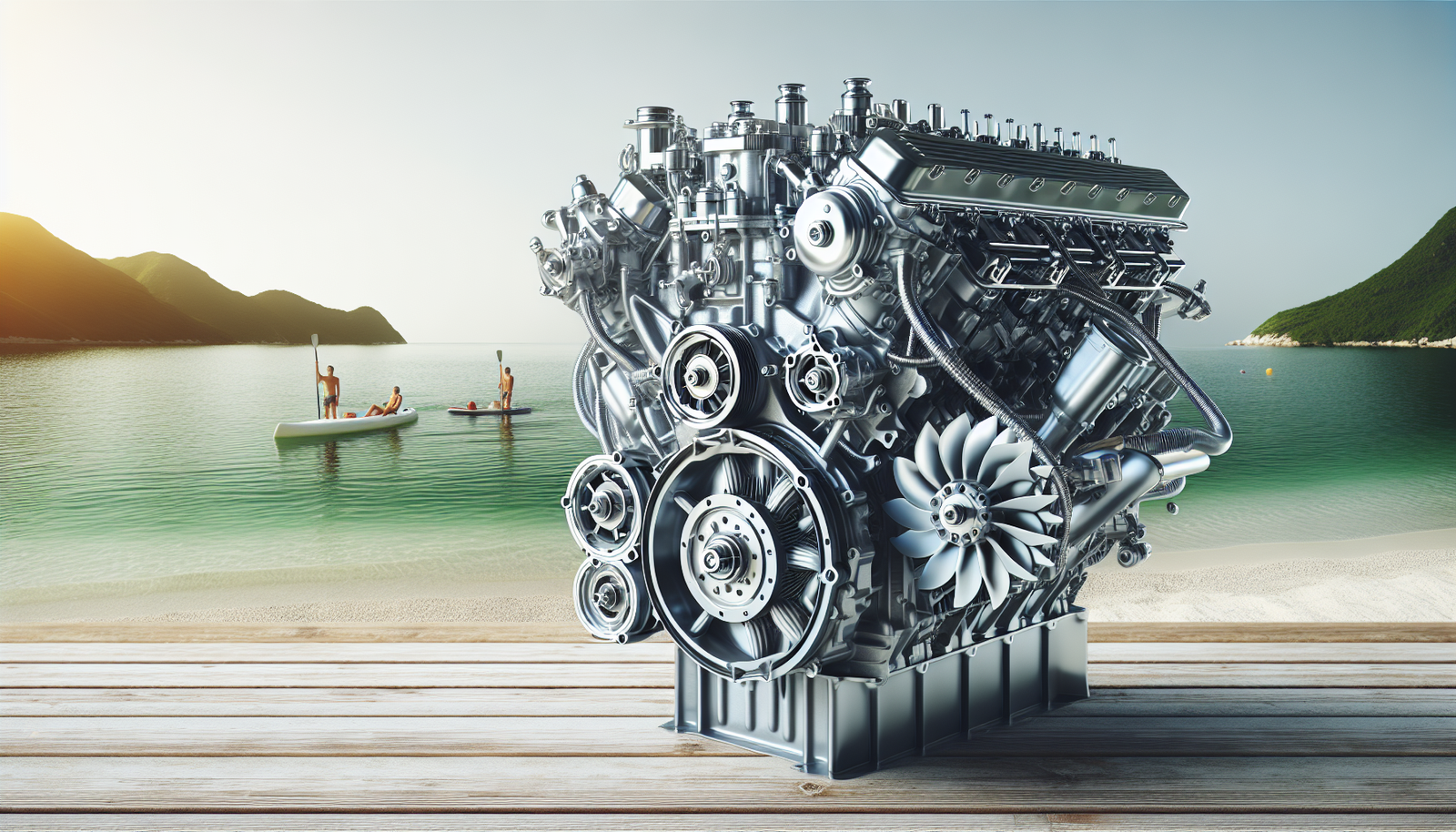Ready for a joyous summer on the water? Gear up, because this article is designed specifically for you, boat enthusiasts! “Best Practices for Summerizing Your Boat Engine” details fail-proof ways to keep your engine in peak condition during the sun-soaked boating season. Through these techniques and suggestions curated for both newbies and seasoned boat owners, you’ll keep your boat engine running smoothly as you set sail for exciting summer adventures. Hang tight, let’s equip your vessel for some unbeatable fun in the sun!

Understanding the Importance of Summerizing Your Boat Engine
If you’re an owner of a boat, you might have heard about the practice of summerizing your boat engine. But do you understand why it’s essential and the impact it can have on the longevity of your boat? In simple terms, summerizing your boat engine is preparing it for the warm season. It’s in comparison to winterizing, which readies your boat for the colder months. When done correctly, you can prolong the lifespan of your boat engine, and it can save you from much inconvenience down the line by preventing potential issues.
Why you need to summerize your boat engine
As summer Spring rolls in and spreads its warmth, recreational activities pick up. If your boat has been docked throughout winter, spring is the perfect time for you to inspect your vessel and prepare it for the pleasant, activity-filled weather. The engine is just like the heart of the boat, which creates a valuable experience out on the water without even realizing it. If not correctly maintained, the mechanical issues could affect your sailing experience.
The impact of proper summerization on engine lifespan
A well-maintained boat engine promises a longer lifespan. Just like any other machinery, the internal components of an engine wear and tear over time. Proper summerization ensures the engine is efficiently lubricated and reduces any undue strain, fatigue, and premature failure of the parts.
Preventing potential problems through summerization
Regular maintenance, including comprehensive summerization, can help identify minor issues before they escalate into significant problems. This process involves scrutinizing all boat components, especially the engine, eliminating any potential hindrances that may ruin your summer boating season.
Gathering the Required Equipment and Materials
Summerizing your boat engine requires several tools and materials. Understandably, you might be a bit overwhelmed if doing this for the first time. However, knowing what you need makes the process more straightforward.
What tools will you need
The primary tools that you will need include a wrench set, spark plug gapper, torque wrench, and spark plug socket. In addition, you’ll also need a grease tube and a rag for cleaning purposes.
Understanding the role of each material in summerization
Each tool plays a vital role in summerizing your boat engine. For example, wrenches are used to tighten or loosen bolts and nuts, while the spark plug socket is used to remove or install spark plugs. The spark plug gapper checks the gap between the spark plug electrodes.
Safety equipment to have on hand
Your safety is essential during the process of summerization. Wear gloves to protect your hand and safety goggles to protect your eyes from any flying debris or harmful substances. It’s also a good idea to prepare a fire extinguisher if you’re dealing with fuel or other flammable materials.
Cleaning and Checking the Boat Engine
Thorough cleaning forms the basis of a proper summerization process. Not only does it maintain the boat’s aesthetic appeal, but cleanliness can also extend the lifespan of your engine.
How to thoroughly clean your boat engine
To begin, delicately remove any dirt, salt, or grime that may have gathered over the winter. This can be achieved with a simple solution of mild soap and warm water. Once done, don’t forget to rinse with freshwater and allow the engine to dry fully.
Spotting key signs of wear and tear
As you clean the engine, you also need to keep a lookout for signs of wear and tear. This includes broken seals, corrosion, loose connections, and anything that seems abnormal. These could potentially be a sign of underlying issues that need urgent attention.
Ensuring the engine oil is suitable for the weather
When preparing for summer, make sure that the engine oil is suitable for high temperatures. You can refer to your owner’s manual for the recommended oil in warmer weather. Remember, just as our bodies need proper hydration in summer, engines need optimal lubrication.

Replacing or Repairing Engine Parts
When it comes to summerizing, sometimes you will need to replace or repair some engine parts. Even if your boat has been inactive throughout winter, remember that parts can still wear down over time.
How to know if parts need to be replaced or repaired
Regular inspection is the key to knowing which parts need to be replaced or repaired. Listen to the sounds your engine makes, look out for abnormal vibrations, or check for signs of leakage. If you find any irregularities, it’s a sign that a certain component needs attention.
Steps for replacing common engine parts
The steps vary depending on the part that needs to be replaced. However, always consult your owner’s manual for instructions. If you’re not familiar with the process, you should consider hiring a professional who can guarantee a job well done.
Sourcing quality replacement parts
When sourcing replacement parts, go for high-quality parts even if they might cost a bit more. Using substandard parts could lead to damage to other components of your engine, which could turn out to be more expensive in the long run.
Properly Draining the Cooling System
Draining and re-filling the cooling system is a critical part of the summerizing process. Remember, engines produce a lot of heat and could quickly get damaged without a properly functioning cooling system.
Importance of draining the cooling system
Draining the cooling system helps remove old coolant, rust, dirt, and other contaminants that could hinder the performance of your engine. Replacing the coolant ensures your engine can adequately dissipate heat during the summer.
Step by step guide to draining
Again, the owner’s manual comes to the rescue here. You’ll find specific instructions on how and where to empty the coolant. Don’t forget to safely dispose of the old coolant, keeping in mind environmental laws and regulations.
What to do if you encounter problems while draining
If you encounter any hitches during this process, don’t hesitate to consult a professional. Failure to rectify any anomalies could result in your engine overheating, a situation that could cause severe damage.
Applying Anti-Corrosion Solutions
Given that most boating activities occur in potentially corrosive environments, applying anti-corrosion solutions should be a priority during summerization.
Understanding when and why to apply anti-corrosion solutions
Anti-corrosion solutions are mostly applied during the summerizing process, before the boat is used frequently. They help protect engine parts from the corrosive effects of salt, dirt, and water, ensuring that the engine remains in top-notch condition for longer.
Choosing the right anti-corrosion for your boat engine
There are many anti-corrosion solutions on the market, and you should select one that suits your type of boat engine. While some solutions are meant for all engine types, others are exclusively formulated for certain engine models.
Steps for applying anti-corrosion solutions
Firstly, ensure the engine surface is clean and dry. Then, apply the solution according to the manufacturer’s instructions. Typically, a spray-on solution is left to dry, forming a protective coating that helps combat corrosion throughout the summer.
Protecting the Electrical Systems
Your boat’s electrical system plays a vital role in steering, propulsion, and operating other key onboard systems. Summerizing should therefore involve a comprehensive check of the electrical system.
The role of electrical systems in your boat
From lights, navigation systems, to the anchor winch, your boat’s electrical system powers practically everything. It is made up of a network of wires, connections, and devices, all of which need utmost protection.
Methods to protect the electrical systems
Traditional methods of protecting the electrical system involve regularly inspecting wires for any signs of wear, ensuring batteries are fully charged, and cleaning battery terminals. Using a dielectric grease to coat connections can also prevent corrosion and enhance conductivity.
What can go wrong with your electrical system during the summer
Given the high temperatures in summer, your boat’s electrical system is at risk of overheating. System failures can occur if there’s not enough charge in the batteries, or if there are loose connections. Corrosion can also build up on terminals, leading to erratic operation.
Monitoring the Fuel System
When embarking on the summerization process, don’t ignore the fuel system. It includes the fuel tank and lines, and also the engine’s carburetor or fuel injection system, all of which require periodic maintenance.
Why the fuel system needs attention
If left unchecked, the fuel system can experience various issues that can affect your engine’s overall performance. For example, old or poor-quality fuel can damage your engine, while debris could clog the fuel lines, resulting in fuel starvation.
Steps to consider for your fuel system
Begin by draining old or poor-quality fuel and replace it with fresh fuel. Then, inspect the fuel lines for any signs of wear or cracks, replacing if necessary. Also, consider adding a fuel stabilizer to maintain fuel quality throughout the summer.
Dealing with potential fuel system problems
If you notice your engine is struggling to start or running erratically, this could indicate a problem in the fuel system. We recommend seeking professional help to avoid damaging the engine.
Performing Regular Inspections During Summer
Even after summerizing your boat engine, regular inspections throughout the summer are advisable. These can help nip potential issues in the bud before they escalate into full-blown problems.
Importance of regular inspections
Regular inspections allow you to monitor the state of your boat engine and make necessary adjustments. The more attention you give your boat, the more likely it is to serve you well.
Common issues to look out for
Typically, you should keep your eyes open for signs of overheating, unusual noises, oil leakage, or a drop in your boat’s performance. Any of these could be indicative of a potential problem that needs immediate attention.
When to seek professional help for inspections
While routine checks can be performed by you, more detailed inspections should be left to a professional. They’re trained to detect subtle signs of damage that you might miss. They can also offer advice on preventive maintenance and performance optimization.
Storage and Covering of Your Boat
When you’re not using your boat, storing, and covering it properly can preserve its longevity and protect it from summer elements like sun, wind, and rain.
Significance of proper boat storage
Proper storage protects the boat from harsh weather conditions that could cause fading, cracking, and general wear and tear. It also prevents damage caused by animals that might see your boat as a comfortable shelter.
Choosing a boat cover for the summer
There are many boat covers available on the market. When shopping for one, focus on the quality of the material, whether it’s waterproof, and if it offers UV protection. A good cover should also be breathable to prevent condensation from collecting underneath and causing mold or mildew.
Spotting signs of damage from improper storage or poor covering
Improper storage or inadequate covering can lead to a range of problems such as color fading, upholstery damage, growth of mold and mildew, and even engine damage. If you notice any of these signs, it probably means you need to reevaluate your storage or covering practices.
In closing, summerizing your boat engine is an essential task for every boat owner. Not only can it optimize your boat’s performance during the summer, but it can also prolong the lifespan of the boat and save you from costly repairs. So, get your tools, gather your summerizing materials, and be ready to set sail for a fun-filled boating season.

